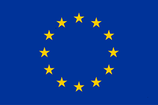Chilean Ob-Gyn starting a PhD at KU Leuven, Belgium. 31 YO, married, first kid on the way. You have been accepted, congratulations! - Now, what? Here are some tips to get you started with the non-academic aspects of your new project 1: Anticipate Specially as a non-EU citizen, your journey begins several months before your PhD starting date. As early as you can, find out what you need to get your VISA (and your partner's if you have one), and what steps to take once you've reached your destination. Try to find the "First steps upon arrival" note on your University website and start from there. You can save a few weeks just by booking your appointment at your University HR office and your City Hall in advance. Taxes, health insurance, personal insurance (liability), bus/tube tickets, student’s benefit are all topics you should read about beforehand. Find out if your driver's license is valid in your new country and if it's not, get an international driver's license for the first year. Try to get in touch with someone that had a similar experience, whether it was in the same University or not, and learn from their experience. If you find someone who followed the same program at the same University, jackpot! 2: Make yourself at home Specially if it’s your first time living outside your country, starting your life in a different environment and trying to picture yourself there for the next 4 years can be a bit overwhelming. If you're starting this new stage with a partner and/or kids, double challenge. Book your flight for a couple of weeks before the actual start date of your program and take that time to find a place you like. I started looking at flats weeks before traveling, checking prices, neighbourhoods, parks, supermarkets, gyms, and everything I needed for my day-to-day living. 3: Adapting It is not always easy to be the new bird at the office, and some cultures can be a bit colder than others. Don't take it personal. Respectfully introduce yourself to the people that you see every day, even if it's not the first time you see them. Many of your fellow students or co-workers have faced the same difficulties that you will face in the first year, so having a coffee or a beer after work to chat about their experiences can be really helpful. On the other side, friends you make at the workplace are most likely to become your family for the next couple of years, so do not underestimate the value of friendship in this new endeavour. 4: Workplace In order to really be productive in your workplace, you have to be comfortable. There are different approaches when it comes to workplace environment, but one thing is a constant: customize. Whether it's a plant, your books, or a minimalistic desk with nothing more than a mouse pad, putting in time to customize your workplace will pay off. You are most likely to spend the first couple of weeks or even months sitting in your desk reading and filling up paperwork, so take time to set up your lighting, adding some inspirational quotes, or simply pinning useful tables that you use regularly in the board in front of you. Make your workplace, YOUR workplace. Ultimately, there's no need for a degree in internal design in order to feel comfortable and productive in your workplace, so dare to be creative.
Clara Apicella
27/8/2019 09:49:31 am
So very true Ignacio! Very useful tips :)
Reply
Colin Murdoch
6/9/2019 10:50:01 am
Ignacio, Nice blog. I can imagine you fitting in anywhere, with your sense of humour and general interest in anyone you meet.
Reply
Leave a Reply. |
About the blogBeing a PhD student in a European training network is a life-changing adventure. Moving to a new country, carrying out a research project, facing scientific (and cultural) challenges, travelling around Europe and beyond… Those 3 years certainly do bring their part of new - sometimes frightening - but always enriching experiences. Categories
All
Archives
December 2021
|



 RSS Feed
RSS Feed

24/7/2019
2 Comments